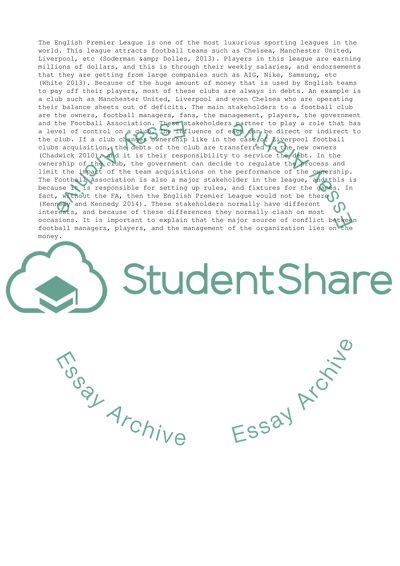Cite this document
(“The Commercialization of Football Assignment Example | Topics and Well Written Essays - 2000 words”, n.d.)
The Commercialization of Football Assignment Example | Topics and Well Written Essays - 2000 words. Retrieved from https://studentshare.org/business/1689761-professionalization-of-modern-sport-for-profit-or-glory
The Commercialization of Football Assignment Example | Topics and Well Written Essays - 2000 words. Retrieved from https://studentshare.org/business/1689761-professionalization-of-modern-sport-for-profit-or-glory
(The Commercialization of Football Assignment Example | Topics and Well Written Essays - 2000 Words)
The Commercialization of Football Assignment Example | Topics and Well Written Essays - 2000 Words. https://studentshare.org/business/1689761-professionalization-of-modern-sport-for-profit-or-glory.
The Commercialization of Football Assignment Example | Topics and Well Written Essays - 2000 Words. https://studentshare.org/business/1689761-professionalization-of-modern-sport-for-profit-or-glory.
“The Commercialization of Football Assignment Example | Topics and Well Written Essays - 2000 Words”, n.d. https://studentshare.org/business/1689761-professionalization-of-modern-sport-for-profit-or-glory.


